Homology Medicines Reports Third Quarter 2020 Financial Results and Recent Highlights
Rhea-AI Summary
Homology Medicines (FIXX) announced significant advancements in its gene therapy programs, including progression of the pheNIX trial for PKU to a dose expansion phase following positive results. The company secured a $60 million equity investment from Pfizer, enhancing its financial footing. Financial results for Q3 2020 revealed a net loss of $(28.2) million but reduced operating expenses, with $178 million in cash on hand, projected to sustain operations through Q3 2022. Homology's new gene therapy for Hunter syndrome (HMI-203) is in development, aimed at systemic and cognitive treatment.
Positive
- Progressed pheNIX gene therapy trial for PKU to dose expansion phase.
- Secured $60 million equity investment from Pfizer.
- Reduced operating expenses to $28.8 million from $31.7 million year-over-year.
- HMI-203 gene therapy program for Hunter syndrome unveiled, with strong manufacturing scaling.
Negative
- Net loss of $(28.2) million for Q3 2020, though improved from $(29.6) million in Q3 2019.
- General and administrative expenses increased to $8.4 million due to new hires and operational expansion.
News Market Reaction – FIXX
On the day this news was published, FIXX declined 2.63%, reflecting a moderate negative market reaction.
Data tracked by StockTitan Argus on the day of publication.
- Based on Positive Data, Advancing pheNIX Gene Therapy Clinical Trial for PKU to Dose Expansion Phase -
-
- Unveiled In Vivo Gene Therapy Program for Hunter Syndrome -
BEDFORD, Mass., Nov. 09, 2020 (GLOBE NEWSWIRE) -- Homology Medicines, Inc. (Nasdaq: FIXX), a genetic medicines company, announced today financial results for the third quarter ended September 30, 2020, and highlighted recent accomplishments.
“At the end of last week, we announced an important milestone for the PKU community and Homology with the positive data from the dose-escalation phase of our pheNIX PKU gene therapy clinical trial and plans to initiate the dose expansion phase by early 2021,” stated Arthur Tzianabos, Ph.D., President and Chief Executive Officer of Homology Medicines.
Dr. Tzianabos added, “We also recently announced that we have expanded our CNS portfolio by unveiling a new gene therapy program for Hunter syndrome. Our in vivo approach with HMI-203 leverages the potential of AAVHSCs to target peripheral organs and central and peripheral nervous systems following an I.V. administration. We believe this advantage, coupled with our team’s direct development and commercialization experience in Hunter syndrome, provides an opportunity to address the cognitive as well as systemic effects of this fatal disorder. HMI-203 has already been scaled up to 500 liters in our internal manufacturing facility, leveraging our plug and play system that is designed to enable rapid development across our gene therapy and gene editing programs.”
Third Quarter 2020 Financial Results and Recent Accomplishments
- Announced today a
$60 million equity investment from Pfizer Inc. with the purchase of 5,000,000 shares of common stock at a price of$12.00 per share, which is expected to close on or about November 10, 2020. The investment includes a right of first refusal on future transactions for the Company’s phenylketonuria (PKU) product candidates: HMI-102 gene therapy candidate for adults with PKU and HMI-103 gene editing candidate for pediatric patients with PKU. - As announced on November 6, 2020, plans to progress the pheNIX gene therapy clinical trial for adults with PKU to the randomized, concurrently controlled dose expansion phase with two doses. The expansion phase has the potential to be converted to a registrational trial. In the dose-escalation phase:
- Development candidate HMI-102 was generally well-tolerated, and there were no treatment-related serious adverse events (SAEs).
- There were marked reductions in phenylalanine (Phe) and the Phe-to-tyrosine (Phe/Tyr) ratio in some patients in Cohorts 2 and 3 (mid- and high-dose cohorts).
- The mean percent change from baseline in Phe observed in patients in Cohorts 2 and 3 were significant, compared to low-dose Cohort 1*. These Phe reductions occurred while patients self-liberalized their diets.
- Expanded Homology’s gene therapy programs with HMI-203, an in vivo approach for mucopolysaccharidosis type II (MPS II, or Hunter syndrome). Homology has initiated IND-enabling studies with HMI-203 and has scaled the development candidate to 500 liters using Homology’s commercial manufacturing platform.
- Received Orphan Designations in the U.S. and EU and Rare Pediatric Disease Designation in the U.S. for HMI-202, Homology’s in vivo gene therapy development candidate for metachromatic leukodystrophy (MLD).
- Presented data from IND-enabling studies with HMI-202 at the American Society of Human Genetics (ASHG) virtual annual meeting, including:
- A single I.V. administration of HMI-202 crossed the blood-brain-barrier and blood-nerve-barrier and led to durable reduction of sulfatides in all brain regions of the disease model.
- HMI-202 was superior to an AAV9-based MLD gene therapy construct in terms of human ARSA enzyme activity, vector genome copies and biodistribution in the peripheral and central nervous systems of the disease model.
- Progressed later-stage IND-enabling studies with HMI-103, Homology’s in vivo, nuclease-free gene editing candidate for pediatric PKU.
- Continued to enhance Homology’s internal GMP manufacturing capabilities, and executed more than 450 unique constructs and more than 550 lots of vector up to 2,000 liters using Homology’s plug and play system that is designed to enable rapid development.
- Continued to monitor the COVID-19 pandemic with no supply chain disruptions. HMI-102 supply is on-hand for the pheNIX trial expansion phase, which includes two doses.
Third Quarter 2020 Financial Results
- Net loss for the quarter ended September 30, 2020 was
$(28.2) million or$(0.62) per share, compared to a net loss of$(29.6) million or$(0.67) per share for the same period in 2019. - Collaboration revenues for the quarter ended September 30, 2020 were
$0.6 million , compared to$0.4 million for the quarter ended September 30, 2019 and consisted of revenue recognized under the Company’s strategic collaboration with Novartis. Collaboration revenues are being recognized over time consistent with the pattern of performance of research and development activities under the collaboration agreement. Homology and Novartis continue to work together on an ophthalmic program and seek to identify new targets for the collaboration based on the exploratory research component. - Total operating expenses for the quarter ended September 30, 2020 were
$28.8 million , compared to$31.7 million for the quarter ended September 30, 2019, and consisted of research and development expenses and general and administrative expenses. - Research and development expenses for the quarter ended September 30, 2020 were
$20.4 million , compared to$25.7 million for the quarter ended September 30, 2019. Research and development expenses decreased due to a decrease in direct research expenses for HMI-102 related to the transition of the manufacturing of clinical trial materials for our Phase 1/2 pheNIX trial from a CMO to our internal GMP facility in 2020, which reduced costs with our CMOs compared to the prior year period. Research and development costs related to laboratory supplies and research materials for our early-stage research programs also decreased. Partially offsetting these decreases were increased costs due to additional employee headcount to support ongoing development programs, research initiatives, technology platform and manufacturing capabilities resulting in increases in salaries, payroll taxes, stock-based compensation expense and recruiting costs. - General and administrative expenses for the quarter ended September 30, 2020 were
$8.4 million , compared to$6.0 million for the quarter ended September 30, 2019. General and administrative expenses increased primarily due to personnel costs as a result of new hires, increased audit and legal costs and additional costs associated with expanded operations. - As of September 30, 2020, Homology had approximately
$178.0 million in cash and cash equivalents. Based on current projections, Homology now expects cash resources, together with the anticipated proceeds of$60.0 million from the Pfizer equity investment, to fund operations into the third quarter of 2022.
Upcoming Virtual Events
- The EveryLife Foundation Scientific Conference: December 15, 2020
- H.C. Wainwright BioConnect Conference: January 11 - 14, 2021
About Homology Medicines, Inc.
Homology Medicines, Inc. is a genetic medicines company dedicated to transforming the lives of patients suffering from rare genetic diseases with significant unmet medical needs by curing the underlying cause of the disease. Homology’s proprietary platform is designed to utilize its human hematopoietic stem cell-derived adeno-associated virus vectors (AAVHSCs) to precisely and efficiently deliver genetic medicines in vivo either through a gene therapy or nuclease-free gene editing modality across a broad range of genetic disorders. Homology has a management team with a successful track record of discovering, developing and commercializing therapeutics with a particular focus on rare diseases, and intellectual property covering its suite of 15 AAVHSCs. Homology believes that its compelling preclinical data, scientific expertise, product development strategy, manufacturing capabilities and intellectual property position it as a leader in the development of genetic medicines. For more information, please visit www.homologymedicines.com.
Forward-Looking Statements
This press release contains forward-looking statements within the meaning of the Private Securities Litigation Reform Act of 1995. All statements contained in this press release that do not relate to matters of historical fact should be considered forward-looking statements, including without limitation statements regarding our expectations surrounding the potential, safety, efficacy, and regulatory and clinical progress of our product candidates; plans and timing surrounding the Phase 1/2 pheNIX trial, including the expansion phase and the potential for conversion to a registrational trial; our collaboration activities with Novartis; our beliefs regarding our manufacturing capabilities and supply of HMI-102 for the expansion phase of the pheNIX trial; our position as a leader in the development of genetic medicines; our expectations regarding the timing for the closing of the Pfizer investment; the sufficiency of our cash and cash equivalents, together with the anticipated proceeds of
*P<0.004; Post-hoc comparison of Cohort 1 vs Cohorts 2&3 using repeated measures MANOVA/regression analysis
- Financial Tables Follow -
| HOMOLOGY MEDICINES, INC. | ||||||||||||||||
| CONDENSED CONSOLIDATED STATEMENTS OF OPERATIONS | ||||||||||||||||
| (in thousands, except share and per share amounts) | ||||||||||||||||
| (Unaudited) | ||||||||||||||||
| Three months ended September 30, | Nine months ended September 30, | |||||||||||||||
| 2020 | 2019 | 2020 | 2019 | |||||||||||||
| Collaboration revenue | $ | 567 | $ | 441 | $ | 1,722 | $ | 1,103 | ||||||||
| Operating expenses: | ||||||||||||||||
| Research and development | 20,417 | 25,691 | 77,197 | 69,056 | ||||||||||||
| General and administrative | 8,423 | 6,038 | 24,986 | 16,431 | ||||||||||||
| Total operating expenses | 28,840 | 31,729 | 102,183 | 85,487 | ||||||||||||
| Loss from operations | (28,273 | ) | (31,288 | ) | (100,461 | ) | (84,384 | ) | ||||||||
| Other income: | ||||||||||||||||
| Interest income | 41 | 1,661 | 1,558 | 4,635 | ||||||||||||
| Total other income | 41 | 1,661 | 1,558 | 4,635 | ||||||||||||
| Net loss | $ | (28,232 | ) | $ | (29,627 | ) | $ | (98,903 | ) | $ | (79,749 | ) | ||||
| Net loss per share-basic and diluted | $ | (0.62 | ) | $ | (0.67 | ) | $ | (2.19 | ) | $ | (1.92 | ) | ||||
| Weighted-average common shares outstanding-basic and diluted | 45,227,231 | 43,904,812 | 45,196,459 | 41,503,545 | ||||||||||||
| HOMOLOGY MEDICINES, INC. | |||||||
| CONDENSED CONSOLIDATED BALANCE SHEETS | |||||||
| (in thousands) | |||||||
| (Unaudited) | |||||||
| As of | |||||||
| September 30, 2020 | December 31, 2019 | ||||||
| Cash, cash equivalents and short-term investments | $ | 178,003 | $ | 262,388 | |||
| Property and equipment, net | 39,684 | 42,716 | |||||
| Other assets | 10,675 | 5,463 | |||||
| Total assets | $ | 228,362 | $ | 310,567 | |||
| Accounts payable, accrued expenses and other liabilities | $ | 11,742 | $ | 21,109 | |||
| Operating lease liabilities | 16,037 | — | |||||
| Deferred revenue | 30,361 | 30,951 | |||||
| Stockholders' equity | 170,222 | 258,507 | |||||
| Total liabilities and stockholders' equity | $ | 228,362 | $ | 310,567 | |||
| Company Contacts Theresa McNeely | |
| Chief Communications Officer and Patient Advocate | |
| tmcneely@homologymedicines.com 781-301-7277 | |
| Media Contact: | |
| Cara Mayfield | |
| Senior Director, Patient Advocacy and Corporate Communications | |
| cmayfield@homologymedicines.com 781-691-3510 |







